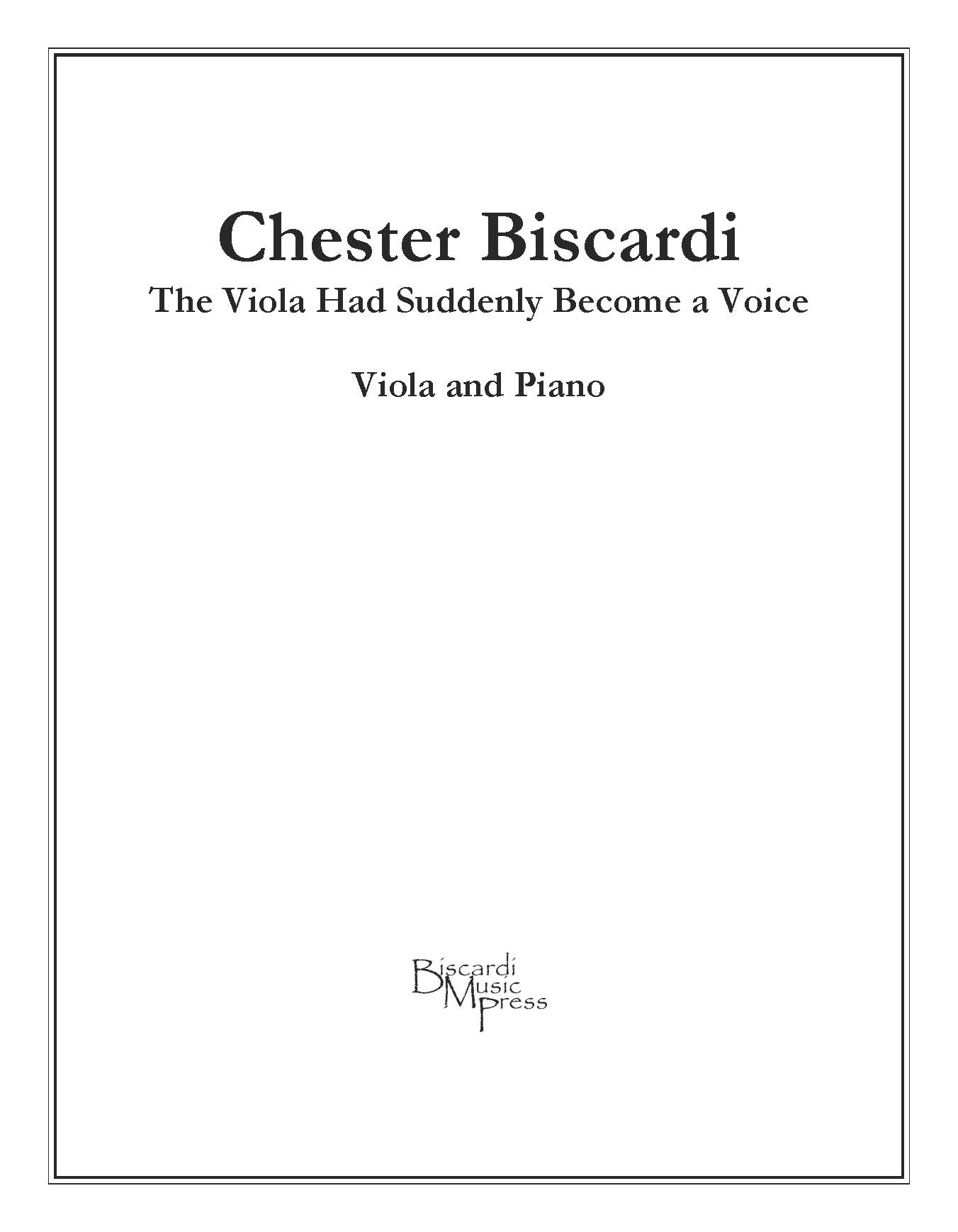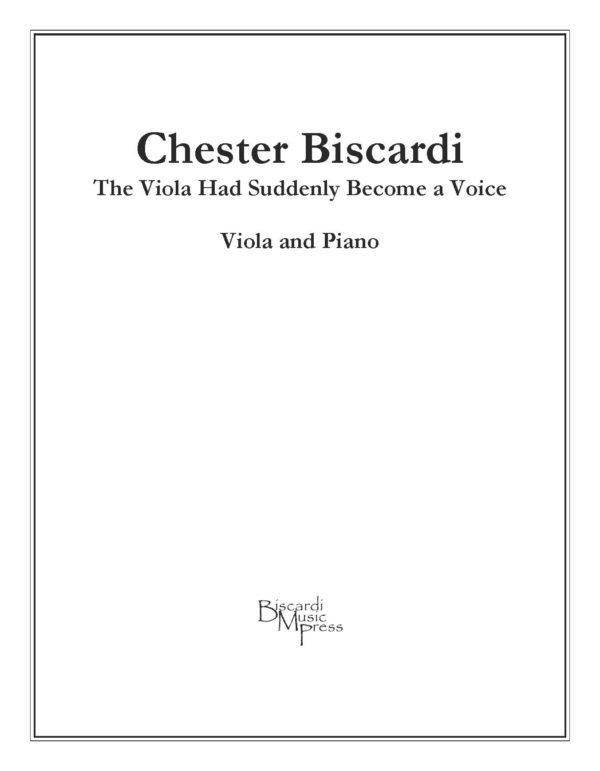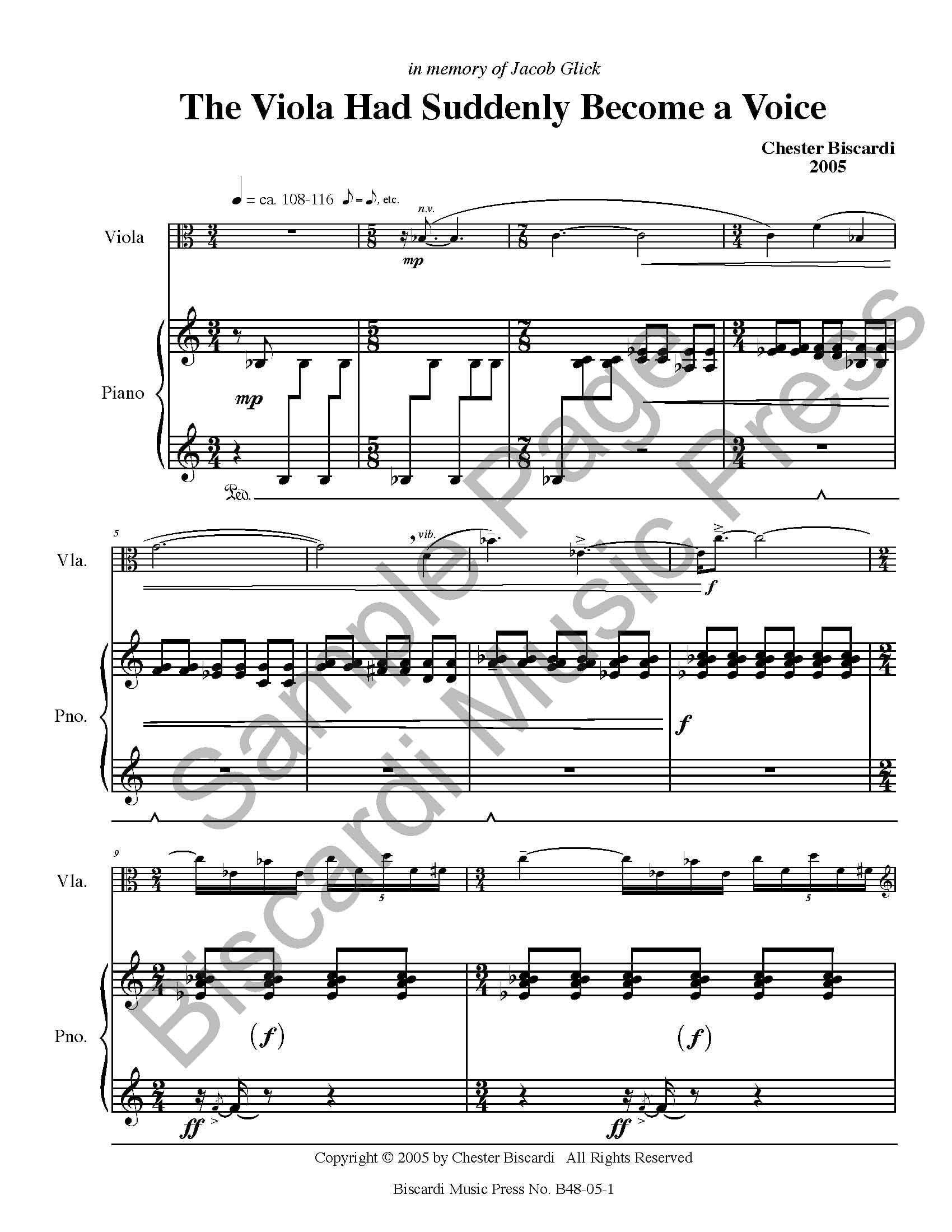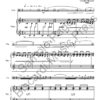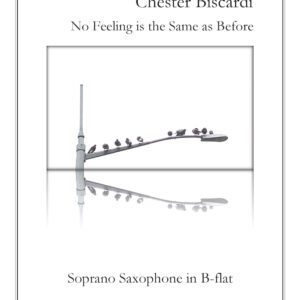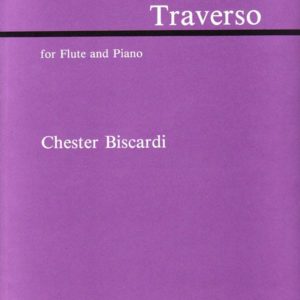Description
Audio
Paul Neubauer, viola; James Goldsworthy, piano
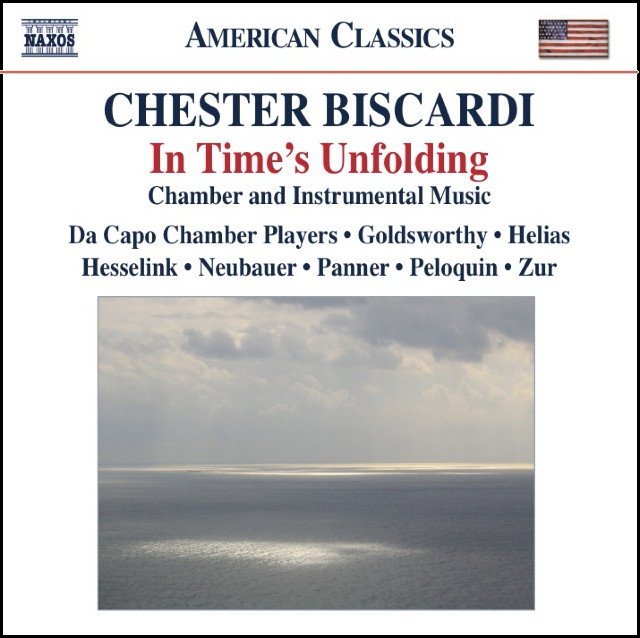
This recording appears on Chester Biscardi: In Time's Unfolding, Naxos 8.559639 (Hong Kong, 2011) with In Time's Unfolding, Tartini, Piano Quintet, Mestiere, Di Vivere, and Companion Piece (for Morton Feldman). Liner notes by the composer.
Premiere
19 February 2006
Toby Appel, viola / James Godsworthy, piano
Companion Pieces - Music for Piano, Viola and Voice; Reisinger Concert Hall, Sarah Lawrence College
Bronxville, NY
23 February 2006
Toby Appel, viola / James Godsworthy, piano
Greenwich House Arts / North River Music Series 20th Anniversary Concert; The Renee Weiler Recital Hall; Greenwich House Music School
New York, NY
Dedication
Written in memory of violist Jacob Glick
Publisher
Biscardi Music Press No. B48-05-1
Distribution: Theodore Front Musical Literature, Inc.
Program Notes
The Viola Had Suddenly Become a Voice, for viola and piano (2005), was written in memory of violist Jacob Glick, internationally recognized violist and teacher. He was principal viola in many groups, and as a chamber music coach his inspirational and kind guidance was legendary. He championed the music of the 18th century in his performance of numerous works for the viola d’amore, and he was an advocate of contemporary music and of living composers, premiering over 200 new works as a performer and encouraging the study and performance of new music as a music festival director and as a college teacher and coach.
The title was suggested by a passage from Andrea Camilleri’s mystery novel, Voice of the Violin (2003), translated by Stephen Sartarelli, where Inspector Montalbano becomes aware of a violin that “had suddenly become a voice, a woman’s voice, that was begging to be heard and understood. Slowly but surely the notes turned into syllables, or rather into phonemes, and yet they expressed a kind of lament, a song of ancient suffering that at moments reached searing, mysteriously tragic heights.”
The Viola Had Suddenly Become a Voice takes as its departure a quote from the last movement of Schumann’s Piano Quartet in E-flat Major, Op. 47 (1842), and includes self-references to Di Vivere, a work of mine that Jacob Glick admired. In The Viola Had Suddenly Become a Voice one thing becomes another: there is a transformation from Schumann to Biscardi; the viola moves out of a chamber texture into a solo role; and I celebrate the musical legacy transferred from generation to generation, acknowledging the work of Jacob Glick’s daughter, soprano Judith Bettina.
Residencies in 2005 at The Bogliasco Foundation’s Liguria Study Center for the Arts and Humanities in Italy and at Dartington College of Arts in Devon, United Kingdom, supported the writing of this work.

